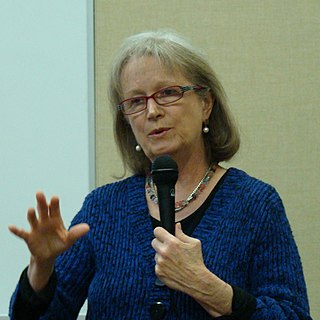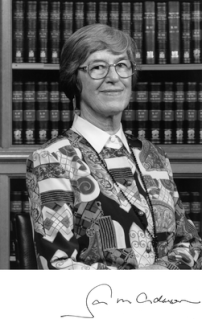A Quote by James Balog
Ultimately, we have to ask ourselves an essential spiritual and ethical question: Are we the kind of people who take everything for ourselves and leave nothing for others, or do the angels of our better nature still live? I believe the angels are still alive.
Related Quotes
Every religion, Eastern and Western, has the same archetype of benevolent guides in Heaven helping us, whether they are called bodhisattvas, deities, devas, or angels, as they are called by the monotheistic religions of the West. Angels can unite people across religious and spiritual divides. Angels are something we all agree on. Nobody fights about angels.
Where there are problems, there are angels hovering about just waiting for us to ask them to help us transform our suffering into blessings. I'm not being religious, I'm telling you the truth as I have experienced it. ... And I'm not being trendy either. I was talking to angels long before they got fashionable. ... So maybe you don't believe in angels, that's all right, they don't care. They're not like Tinkerbell, you know, they don't depend on your faith to exist. A lot of people didn't believe the earth was round either, but that didn't make it any flatter.
I think it's time we ask ourselves if we still know the freedoms that were intended for us by the Founding Fathers... Whether we believe in our capacity for self-government or whether we abandon the American Revolution and confess that a little intellectual elite in a far-distant capital can plan our lives for us better than we can plan them for ourselves.
We can all be angels to one another. We can choose to obey the still small stirring within, the little whisper that says, 'Go. Ask. Reach out. Be an answer to someone's plea. You have a part to play. Have faith.' We can decide to risk that He is indeed there, watching, caring, cherishing us as we love and accept love. The world will be a better place for it. And wherever they are, the angels will dance.
The death of God left the angels in a strange position. They were overtaken suddenly by a fundamental question. One can attempt to imagine the moment. How did they look at the instant the question invaded them, flooding the angelic consciousness, taking hold with terrifying force? The question was, "What are angels?" New to questioning, unaccustomed to terror, unskilled in aloneness, the angels (we assume) fell into despair.
Compassion- which means, literally, "to suffer with"- is the way to the truth that we are most ourselves, not when we differ from others, but when we are the same. Indeed the main spiritual question is not, "What difference do you make?" but "What do you have in common?" It is not "excelling" but "serving" that makes us most human. It is not proving ourselves to be better than others but confessing to be just like others that is the way to healing and reconciliation.


































